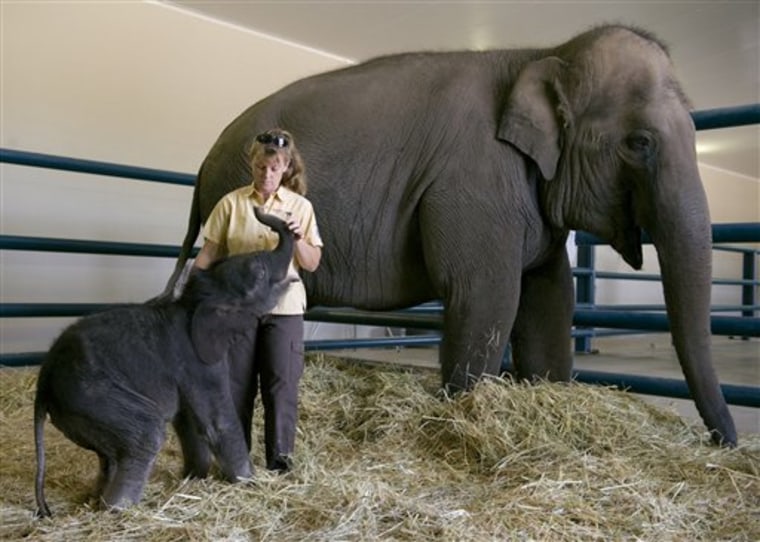After more than eight years of legal skirmishing, a trial is scheduled to open Wednesday in a lawsuit filed by animal welfare groups alleging that Ringling Bros. and Barnum & Bailey Circus routinely abuses its performing elephants.
The plaintiffs — including the American Society for the Prevention of Cruelty to Animals and the Animal Welfare Institute — allege that trainers' use of sharp tools called bullhooks and the prolonged use of chains on the Asian elephants add up to an egregious violation of the federal Endangered Species Act.
They seek an order from U.S. District Court in Washington, D.C., halting these practices, which some activists hope would force Ringling Bros. to give up elephants altogether.
The non-jury trial before U.S. District Judge Emmet Sullivan is expected to last three weeks.
State-of-the-art care?
Ringling Bros. and its parent company, Feld Entertainment, have defended themselves aggressively since the suit was filed in 2000, contending their treatment of all circus animals is state-of-the-art.
Circus officials note that government regulations permit use of chains. They say the elephants are chained in place at night to keep them from foraging their companions' food, and during train rides to prevent sudden weight shifts that might derail their freight car.
The plaintiffs have asserted that Ringling Bros.' own train records show the elephants are chained in railroad boxcars for an average of more than 26 straight hours, and often 60 to 70 hours at a time, when the circus travels.
The circus also defends the use of bullhooks, saying the sharp tools have been used for centuries in Asia to control elephants humanely. Activists say the implements — which resemble long fire pokers — often inflict wounds that leave scars.
Michelle Pardo, a lawyer for Feld Entertainment, said the defense will prove that the elephants "are healthy, alert, and thriving."
"Animal special interest groups are distorting the facts by making false allegations about the treatment of Ringling Bros. elephants as part of a long-running crusade to eliminate animals from circuses, zoos and wildlife parks," Pardo said.
Allegations of abuse by former employee
In addition to four animal welfare groups, the plaintiffs include Tom Rider, a former Ringling Bros. employee who alleges that he witnessed abuse of the elephants on numerous occasions.
"We look forward to showing at trial how the elephants are routinely hit with bullhooks and continuously chained in the hopes that this case will preclude Ringling Bros. from mistreating these spectacular endangered animals ever again," Rider said.
His testimony will be supplemented by photographs, video footage and internal Ringling Bros. documentation which the plaintiffs say support the allegations of mistreatment.
Much of the wrangling over the past eight years has dealt with access to circus veterinary documents and in-house videos.
Overall, Ringling Bros. has 54 elephants — many of them kept at a 200-acre conservation center in Florida while the others are on tour. The newest arrival is a calf born at the center on Jan. 19 — named Barack in honor of the new U.S. president inaugurated the next day.
The circus says it spends $60,000 annually on care of each elephant and has three full-time veterinarians to look after them.
The plaintiffs hope the lawsuit pressures Ringling Bros. to stop using elephants in its shows and contend that many circus-goers have come to appreciate animal-free circuses.
However, Ringling Bros. says its audience surveys indicate the elephants are a favorite attraction.
